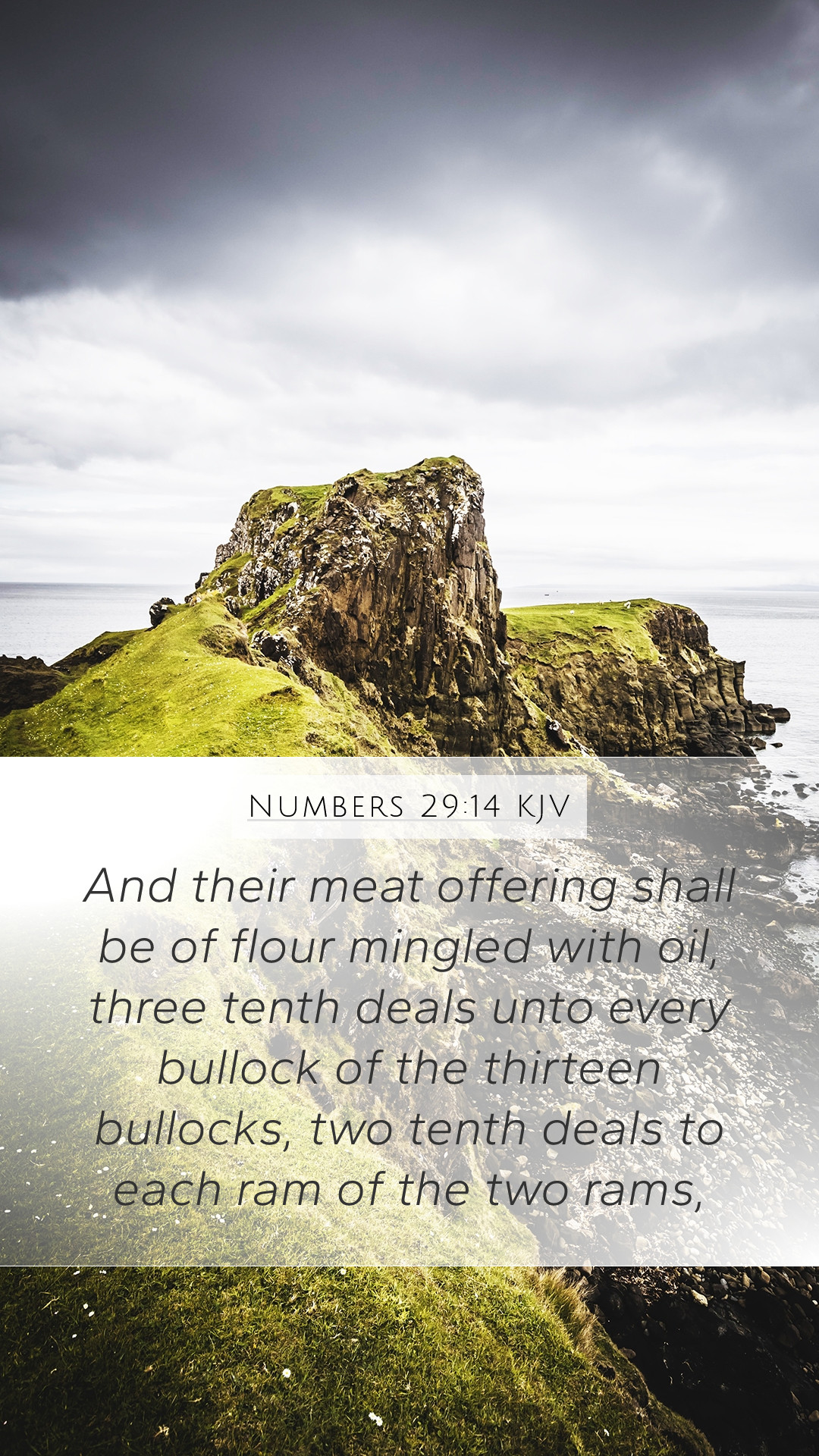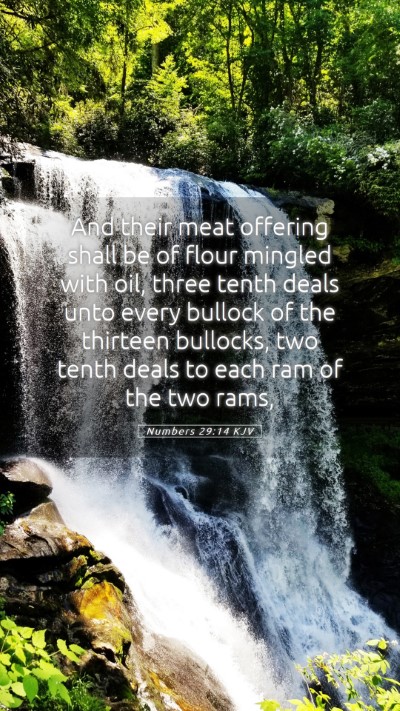Understanding Numbers 29:14 - A Comprehensive Commentary
Numbers 29:14 presents a vital aspect of Israel's ceremonial law, specifically regarding the offerings during the Feast of Tabernacles. The significance of this verse is deeply embedded in its historical and spiritual context. Below, we provide a synthesis of insights from various public domain commentaries, including Matthew Henry, Albert Barnes, and Adam Clarke, along with relevant cross-references.
Verse Text
Numbers 29:14 (KJV): "And their meat offering shall be of flour mingled with oil, three tenth deals shall ye offer for a bullock, two tenth deals for a ram, and a tenth deal for one lamb."
Verse Meaning and Interpretation
The process of interpreting this verse involves understanding its context within the larger framework of Israel's sacrificial system. The offerings described in Numbers 29:14 are directed towards honoring God during the Feast of Tabernacles, one of the major Jewish festivals established in Leviticus 23. This feast was a time for the Israelites to rejoice and remember their wilderness journey, as well as the provision of God during their stay in temporary shelters.
- Spiritual Significance: The meat offerings, which consist of flour mingled with oil, symbolize the devoted dedication of the people to God. According to Matthew Henry, the flour represents the purity and quality of worship that the Israelites were expected to bring before God.
- Cultural Context: Albert Barnes emphasizes the importance of these offerings in maintaining communal identity and covenantal relationship with God. The intricate specifications for the offerings indicate a structured approach to worship central to ancient Israelite society.
- Nature of Offerings: Adam Clarke highlights that these offerings were not just rituals but channels through which the people expressed their gratitude and dependence on God. Each offering served as a reminder of their sustenance from the Lord.
Historical Context of Numbers 29:14
The context of Numbers 29:14 can be better understood through an analysis of the surrounding chapters. The Israelites were required to present various types of offerings during specific festivals, reflecting their agricultural society's cycles of harvest and gratitude. The instructions laid out in Numbers were crucial for reinforcing the nation’s identity as a chosen people dedicated to God.
Application of the Verse
When applying Numbers 29:14 to contemporary life, we are reminded of the importance of coming before God with our best offerings. This extends beyond material sacrifices to encompass our time, talents, and the quality of our worship. Additionally, it serves as a reminder of God’s provision and faithfulness:
- Generosity in Worship: This verse teaches us the importance of generous giving in our worship practices, echoing the sentiments found in 2 Corinthians 9:7 about giving cheerfully and willingly.
- Community Aspect: The concept of communal worship during festivals underscores the importance of gathering in Bible study groups and online Bible study settings to fellowship and grow in understanding Scripture together.
Cross References
To gain a deeper understanding of Numbers 29:14, consider the following cross-references:
- Leviticus 23:34-43: This passage outlines the Feast of Tabernacles and provides additional details on the celebrations.
- Exodus 34:18-24: Here, God emphasizes the importance of the Feast of Tabernacles in the life of the Israelites.
- Hebrews 10:25: This New Testament reference encourages believers to gather, reflecting the spirit of communal offerings.
Conclusion
The insights garnered from Numbers 29:14 weave together a narrative of devotion, community, and divine provision. By engaging with this verse through various lenses—historical, cultural, and spiritual—we gain a richer understanding of its implications for our own worship practices today. This verse is not simply an ancient directive; it resonates with believers’ contemporary calling to offer our best to God as a reflection of gratitude and relationship. For further Bible study insights, believers can explore themes of sacrifice, worship, and community across various Bible study topics and materials.
Final Thoughts
As you explore the meaning of Bible verses like Numbers 29:14, consider how they can impact your spiritual journey. Engage with Bible study guides and tools to deepen your understanding and enhance your worship experience. Seek to apply the teachings of Scripture in your daily life, recognizing that every offering, analogously speaking, is an expression of your relationship with the Creator.


